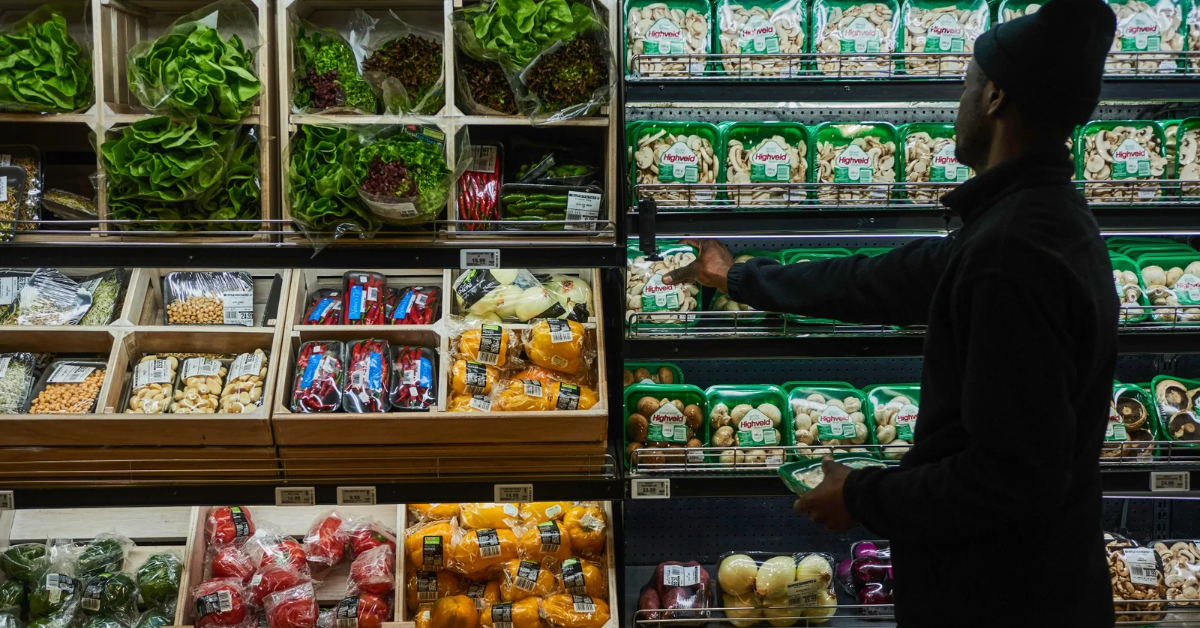The shelves at American grocery stores are always stocked with an abundance of food. From fresh produce to packaged goods, shoppers rarely leave without finding what they need. However, this surplus raises a critical question: What happens to all the food that doesn’t get sold before its expiration date?
Despite the use of advanced technologies like artificial intelligence to predict consumer demand, supermarkets often overstock to ensure customer satisfaction. Inevitably, this leads to leftover food that stores must deal with in various ways.
The Clearance Section: A First Step
When food items are nearing their sell-by date, grocery stores typically move them to clearance sections. These discounted products are offered at lower prices to encourage quick sales, ensuring that food is consumed rather than wasted. Shoppers often find great deals on these items, but not everything gets purchased in time.
Donating to Food Banks
If food remains unsold even after being discounted, many supermarkets choose to donate it to local food banks or charities. For example, major retailers like Walmart, Trader Joe’s, and Food Lion have programs in place to reduce waste by sharing their surplus with those in need.

In 2022, Whole Foods donated over 30 million meals, while Walmart contributed more than 696 million pounds of food. Even if items are past their sell-by dates, they can often still be donated. That’s because these dates typically indicate peak freshness rather than true expiration. Food banks equipped with proper training in food safety are skilled at determining which items are still safe for consumption.
Composting and Animal Feed
For food that is no longer fit for human consumption, grocery stores often turn to compost or donate the food to farmers for animal feed. These methods ensure that the food still serves a purpose instead of being discarded entirely. By converting organic waste into compost, stores help enrich the soil and support agricultural practices. Similarly, providing farmers with surplus food for livestock is an eco-friendly alternative to waste disposal.
Energy Production
Some unsold food is donated to organizations specializing in converting waste into energy. This process involves burning the food to extract gases that can be used as an energy source. This innovative approach not only reduces waste but also helps generate sustainable energy, making it a win-win solution.
Landfilling: The Last Resort
Unfortunately, not all food can be avoided in landfills. Despite the best efforts of some grocery chains, throwing food away remains a common practice, particularly because it is often cheaper than composting or energy conversion. According to ReFED, a nonprofit focused on food waste solutions, approximately 35% of surplus grocery store food ended up as waste in 2023.
Some companies, like Walmart, have set ambitious goals to become zero-waste, but there is still significant progress to be made.
Challenges and Progress in Food Waste Reduction
While many stores are taking proactive steps to minimize food waste, the reality is that there’s still a long way to go. The complexity of supply chains, consumer behavior, and the costs associated with alternative disposal methods all contribute to the ongoing challenge of reducing waste.

Supermarkets like Whole Foods and Walmart are setting an example with large-scale donation programs and waste reduction goals. However, smaller grocery chains may lack the resources or infrastructure to implement such initiatives effectively.
What Can Shoppers Do?
Consumers can also play a role in reducing food waste by shopping mindfully. Purchasing items from clearance sections, understanding the true meaning of sell-by dates, and donating excess food from their kitchens can all make a difference.
A Future of Less Waste
As awareness of food waste grows, both consumers and grocery stores are finding new ways to tackle the issue. From donations and composting to innovative energy solutions, there are many paths to reducing the environmental impact of surplus food.
While it’s clear that significant challenges remain, the progress being made is a step in the right direction. With more initiatives and awareness, the dream of zero-waste supermarkets might one day become a reality.
Note: Every piece of content is rigorously reviewed by our team of experienced writers and editors to ensure its accuracy. Our writers use credible sources and adhere to strict fact-checking protocols to verify all claims and data before publication. If an error is identified, we promptly correct it and strive for transparency in all updates.







Leave a Comment